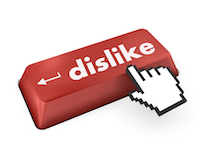 If you track the evolutionary and revolutionary changes of the Internet you’re probably wondering—or a bit confused—about Facebook’s new “Graph Search”…and what it will mean for healthcare marketing.
If you track the evolutionary and revolutionary changes of the Internet you’re probably wondering—or a bit confused—about Facebook’s new “Graph Search”…and what it will mean for healthcare marketing.
 If you track the evolutionary and revolutionary changes of the Internet you’re probably wondering—or a bit confused—about Facebook’s new “Graph Search”…and what it will mean for healthcare marketing. Facebook, the king of social media, is challenging business rival Google, the king of online search.
If you track the evolutionary and revolutionary changes of the Internet you’re probably wondering—or a bit confused—about Facebook’s new “Graph Search”…and what it will mean for healthcare marketing. Facebook, the king of social media, is challenging business rival Google, the king of online search.
Although Graph Search is in what Facebook officially terms “a very limited beta program for English (US) audiences,” our initial impression is one of concern about two significant issues for providers, medical industry executives and marketing professionals. At the top of the list are personal healthcare privacy matters, and the quality of responsible (accurate) medical information.
What is Graph Search?
Graph Search facilitates searching for people, places, things and images. “With Graph Search,” Facebook says, “you can look up anything shared with you on Facebook, and others can find stuff you’ve shared with them, including content set to Public. That means different people see different results. Your privacy choices determine what’s searchable.”
“The company’s algorithms,” according to the New York Times, “will filter search results for each person, ranking the friends and brands that it thinks a user would trust the most. At first, it will mine users’ interests, photos, check-ins and ‘likes,’ but later it will search through other information, including status updates.” [NYT: Search Option From Facebook Is a Privacy Test]
Unlike Google search, Facebook Graph Search draws down on information posted by other Facebook users, and secondarily via Bing. For casual social stuff, like shared comments about a motion picture or a restaurant, the results would be largely innocuous.
But searches about health, healthcare, disease or medication topics could bring forward personal postings about sensitive or private matters, and collectively may not be authoritative or medically sound.
“Facebook’s contention that nothing will come up in a search that has not been shared publicly with the person searching may be technically true,” writes Anthony Wing Kosner at Forbes.com. “But the fact is that most users do not realize all that they have shared, or have shared things in one context and never intended them to be shared in another.” [Forbes: Facebook Graph Search Is A Disruptive Minefield Of Unintended Consequences]
Although Graph Search is in beta release (some adjustments are likely), it’s worth a test drive for a possible future marketing fit. The user public and marketing pros both need to be aware that it’s not the same as a Google search. Results can include Facebook people, groups and products. Users can filter by physical location (a potential plus for local resources), and the system appears to give added weight to pages with “Likes.”
Facebook’s enormous size (one billion users worldwide) and its nearly unrivaled level of user engagement means that Graph Search—however it unfolds and evolves—is well worth the time and attention of healthcare marketing executives. Early impressions could change over time, including reviews that call Graph Search a “game changer” for Facebook. The question is, is this a change for the better for healthcare marketing?






_9_2_1-250x220.jpg)
